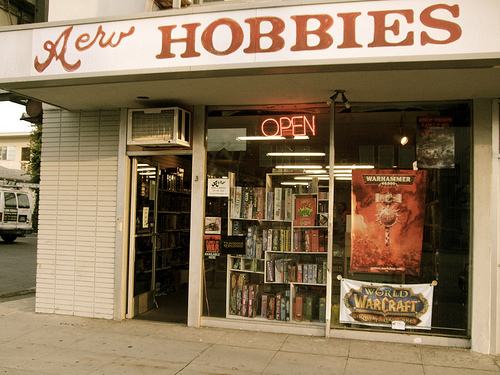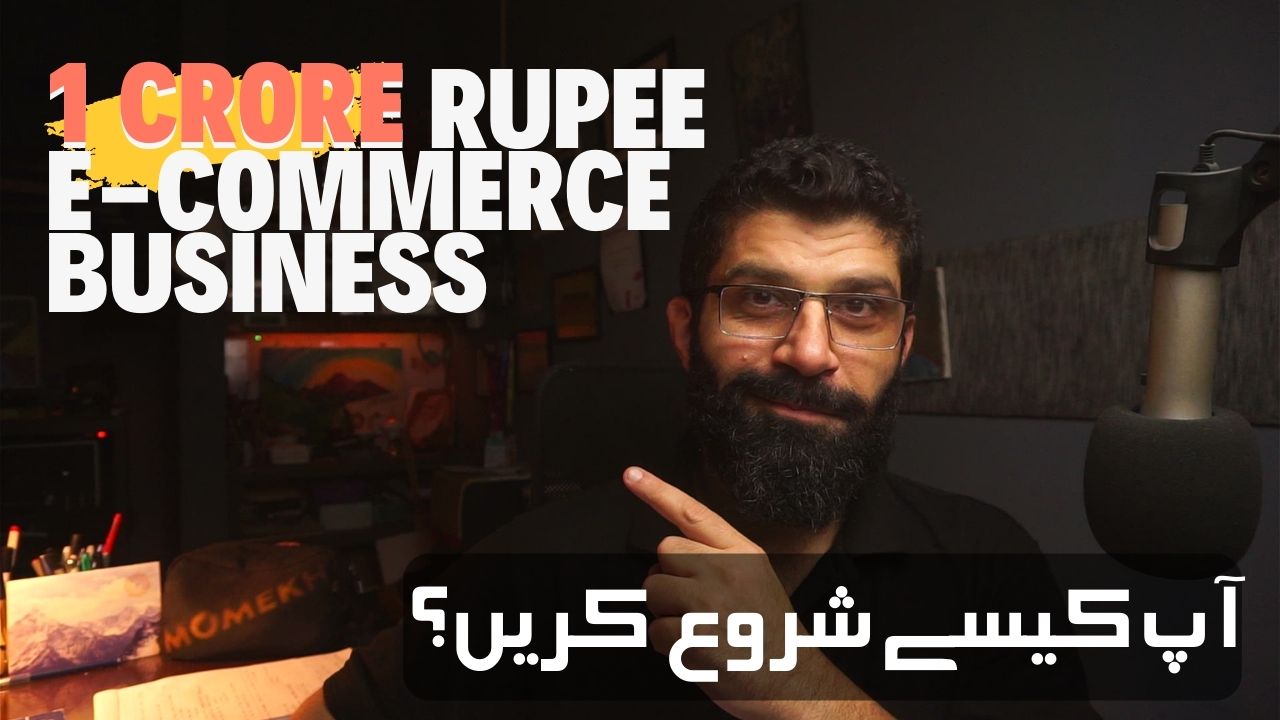
One you finish reading this article, you will have a different view of hobbies and how they relate to one’s life. Because I intend to show you that hobbies is one of the best business models out there.
Normal View of Hobbies
Anything that you enjoy, and do in your leisure time is considered a hobby. In Urdu, we’d call it shauq.
“Shauq da koi mull nai hunda” is an oft-heard Punjabi phrase meaning that there is no price for one’s hobby, a justification to go ‘all out’ in pursuit of one’s interests.
More importantly, one does not associate monetary gain or profits to one’s hobbies. Hobbies are pursued for the sake of relaxation and personal pleasure alone.
It can be deduced (dear Watson) that:
- anything that you’d do in your leisure time is a hobby
- anything that you enjoy is a hobby
- anything that you’d pay to do, spend money on, is a hobby
- goes to say that whatever you earn is spent on doing what you like. This separation of profession (your interest) and business (how you earn) is important and I have written on this distinction that you can read here.
Stamp collection (unbelievably called Philately) is a hobby, possibly one of the most famous hobbies out there. So is fish-keeping. Keeping pet dogs and cats. Gardening. Flying. Making replica models of trains and even towns is another big one. Hunting, all forms of sports, cooking, dancing, music and what not, hobbies are pretty much what makes the world go round.
That’s how it is normally defined. But this is not a place for normal things.
Here’s my question, “if hobbies are something you enjoy, and are considered leisure activities, then one can define hobbies as the purpose of your work?”
If you are busy only because you can later have money (and time) to do what you really like, then you work and earn to pursue one or the other hobby. Plain and simple. Right?
Problems with the Normal view
The biggest problem with this approach towards hobbies (or your interests, passions etc) is that we do not prioritize properly.
It is all about work, isn’t it? You go through about two decades of schooling to get a job, right? Why? So you can eventually have enough time and money to pursue one or the other hobby/interest/passion.
Shouldn’t you first focus on your interests, then work towards getting them? Who teaches us to find out our interests, to discover ourselves what is it that we really like?
But then someone asks, “If all you do is plan hunting trips, collect stamps from afar, design unsellable vector illustrations all freakin’ day, then how will you put bread on that large oversized table?”
Get real and get a job (even if you don’t like it) and then earn enough to one day have enough money and time to pursue your hobbies, so says the normal peoples of the worlds.
Nothing wrong with that approach, but you can do a lot more with your hobbies. A lot more. Where do I start?
The New View: Hobbies as a Profession
Just so you know, this is not as such a new approach as you will soon see. One thing that always gets to me is our deliberate relegation of hobbies to the back-burner. As you will hopefully see, depending pretty much solely on the marketing and business side of things, any hobby can pay dividends not only in the form of the usual pleasure, but also in terms of monetary gain.

Let’s start with professional athletes: Lionel Messi earns, on average, a daily income of approximately 120,000 US dollars. That is per day. In Pakistani Rupees, that is more than 10 Million per day. Messi had a hobby, you see, of football. And he is now earning a crore rupees per day, for doing something that he’d do for free. Had he not been discovered, he probably would be paying monthly membership fees to play in some social football club in his local town. Or something.
Massively one-sided example, I know. Not many footballers can play like Messi and even players of the highest caliber do not get to earn as much. Not even close. But why is that? Is it only skill that makes the most money?
Earnings of this type has a lot to do with business and marketing than just skill. And this is an important distinction.
A bestselling musician (or author etc) of today gets to earn so much not because he or she is a terrific artist, but because marketing has come a long way in distribution and advertising. Artists of yesteryears – no matter how skilled – hardly earned anything, let alone earn large multi-million dollar profits. This is deep stuff on many levels. I mean, how else would you justify the earnings of Lady Gaga? Pahleeze.
Artists of today need to learn the art of the sale, the business side of things, marketing and the concept of distribution to make money. Even unskilled, below-par artists can (and do) make a lot of money because what they lack in skill, they make up for it using a solid education is selling.
This doesn’t apply to artists only. Anyone who knows and follows the basics of selling, can (and do) make a lot money. In fact, as the best-selling author of Rich Dar Poor Dad put it very eloquently that he is a best ‘selling’ author and not the best ‘writing’ author.
Enter the ProHobbyist
If one can approach his or her hobbies professionally and decide which hobby will sell, then one can wrap a business around their hobby.
A ProHobbyist is someone who knows how to monetize their interests, passions and hobbies.
Everyone, whether they know it or not, has a hobby. It can be an expensive hobby like flying planes, a different hobby like snowboarding or mountain biking, a well-concealed hobby like sitting alone in the corner thinking about the day…as per definition, anything that you do in your leisure time and enjoy doing is a hobby. Taking one’s hobby to the next level will involve some serious contemplation in terms of selling and the ‘business side’ of things.
The ProHobbyist will go ahead and find (or make) a hobby that he or she can sell. You will not be earning to spend on things you really like, but you’d be doing what you really like and earning at the same time. And that, my friends, is a worthy objective to work for.
No Business Like Mo’ Business
A business is a name for a mechanism for selling. That’s it and you complicate and romanticize it further at your own risk.
All you, as a prohobbyist has to do is figure out what mechanism, what processes are involved in helping you sell what you love to do, and take your hobby to the next level.
In the pre-Internet days, giving your hobby a mechanism for selling would entail brokering deals with specialized distribution companies. You make music, make a deal with a music publisher; you write, find an agent to get your content syndicated on the Network etc; distribution is a primary requirement for any business. But the Internet took the power from these middlemen and provided it to the core supplier i.e. you!
Thanks to the Internet – rightly considered the great leveler because of its power of distribution – I sell my hobby here from Lahore and have clients in Tokyo, Dubai and Harare! The Internet allows me to do that.
The times have already changed.
If you are a writer, you do not need to ‘break into’ a big publishing house – you can start your blog and use the Internet to make your own following and sell your own stuff. The middlemen are not required anymore (but by sheer experience, they can be very useful still!).
This power of distribution that the Internet affords does wonders for people with a hobby that they take seriously. Now the only thing to consider is the type of hobby that you’d like to take to the next level.



